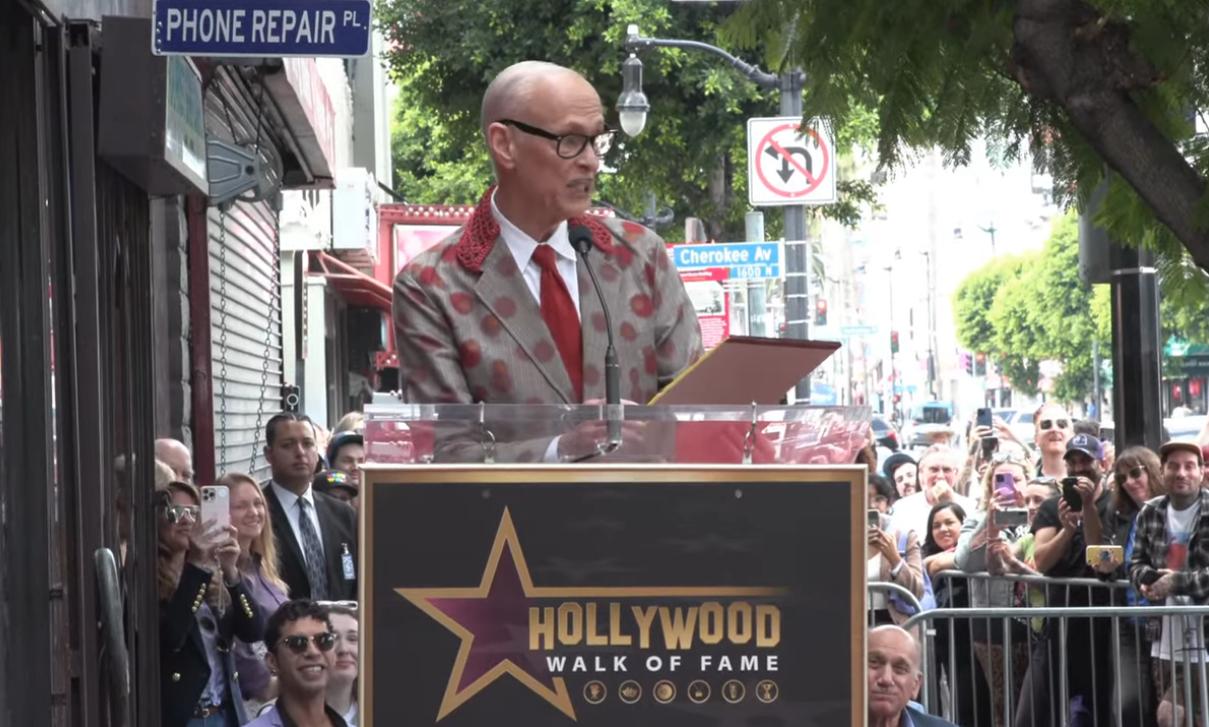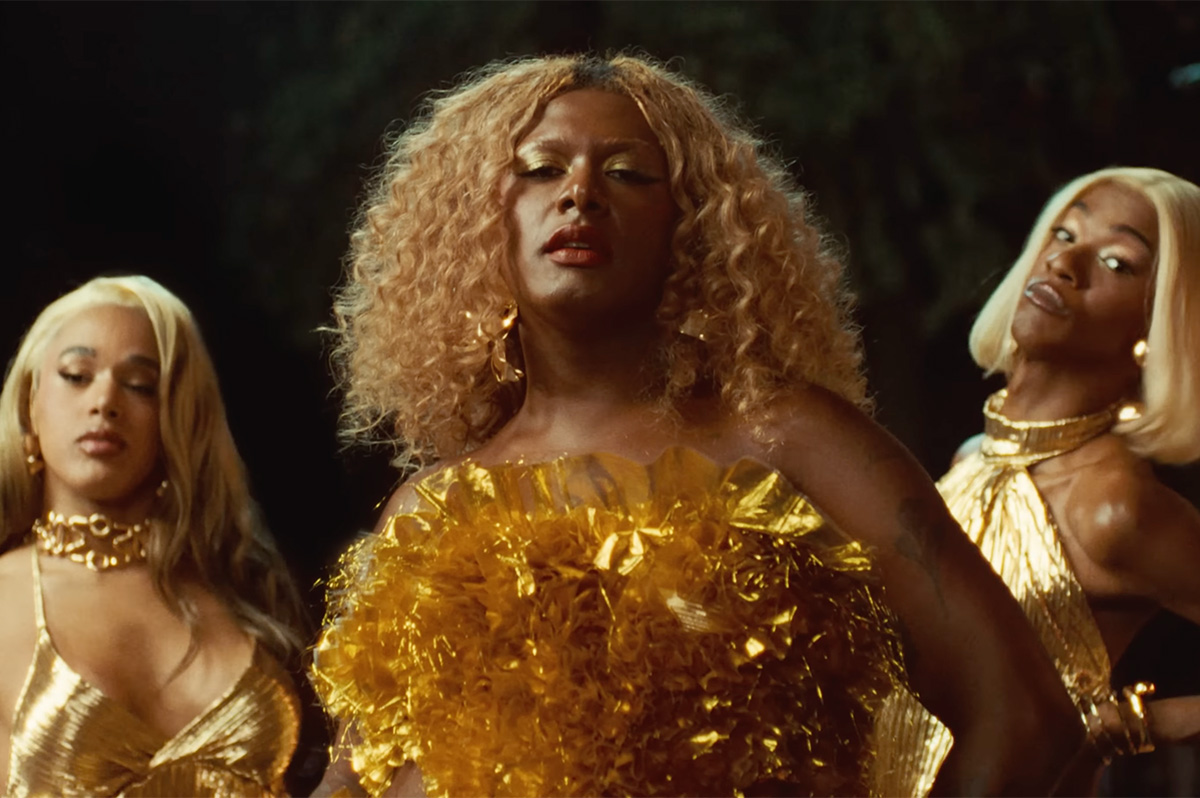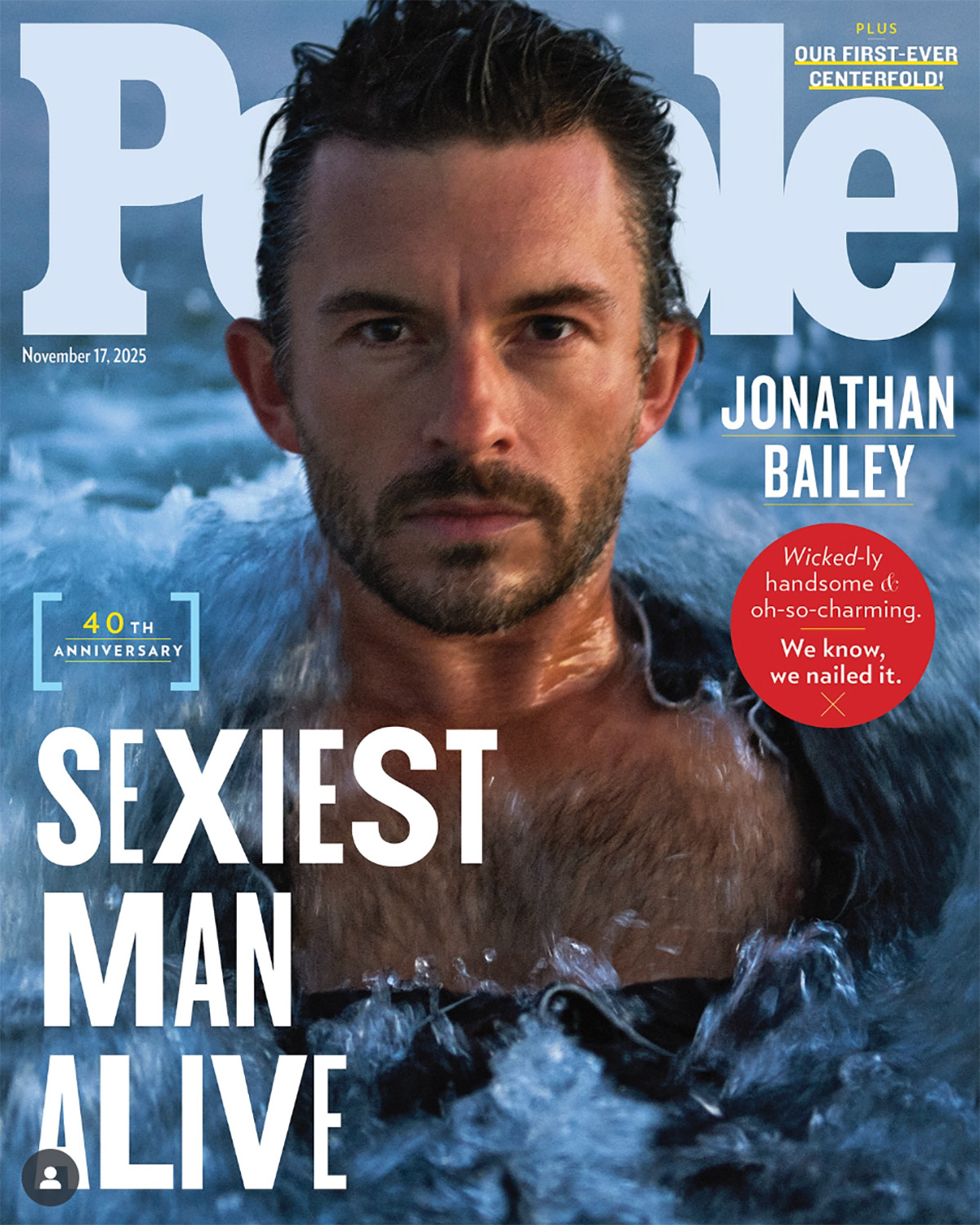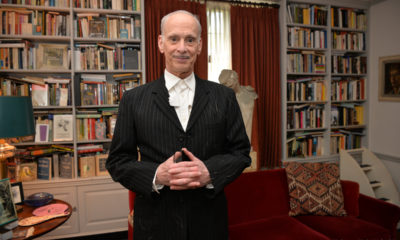Celebrity News
John Waters gets Hollywood Walk of Fame star
Baltimore native proclaimed ‘here I am … closer to the gutter than ever’

Today, the famed Hollywood Walk of Fame became a little more rainbow than it had been before. With gilded star etchings depicting icons on every corner, the powers that be dedicated September 18 to a man who arguably helped thrust LGBTQ visibility into a culture that was probably not ready at the time to receive it. The modern-day fascists amongst us might even call him a “groomer.”
We call him John Waters.
Waters first arrived in Hollywood in 1970. He parked at Hollywood and Vine and received his first bit of Los Angeles recognition.
He got a jaywalking ticket.
Outspoken and brash, Waters introduced outsider culture and heralded gay and transgender visibility into American cinema when the Stonewall uprising was still a very recent memory. His 1972 film “Pink Flamingos” was brazenly trans affirming. It powerfully and glamorously flew in the faces of audiences while trans people only faced marginalization and were stigmatized in the Nixon Vietnam and Watergate era.
His film Hairspray was first a cult favorite and in later iterations, a hit Broadway musical, and a second mainstream hit movie. It featured LGBTQ characters and a leading character in drag. Waters has also written several LGBTQ themed books including “Shock Value” and “Role Models.”
Part of the charm of John Waters is his knack for not taking himself, or any of us, too seriously. His first words as he ascended the podium for the Walk of Fame honor: “Here I am…closer to the gutter than ever!”
“I hope the most desperate showbiz rejects walk over me here and feel some sort of respect and strength,” he said later paying tribute to his greatest inspirations: The underdogs.
Waters dedicated his star to his parents. Pat and John Waters, who had been horrified by his earliest films, but encouraged him to pursue Hollywood nonetheless. “What else could I do?” he mused.
All in all, Waters was “astonished” over the tribute. He thanked Outfest for sponsoring the event and for thinking he was “gay enough to receive it.”
Ever the director, and thinking ahead, he took a moment to make a recommendation for whom he thinks should be Hollywood Boulevard’s next star recipient:
Divine.
Film critic and historian Leonard Maltin summed up John Waters this way: “John Waters is a national treasure, a unique and original voice in American cinema. His films are subversive, hilarious, and thought-provoking, and they have helped to change the way we think about outsider culture and LGBTQ+ representation.”
Now Waters has his day, and his star, immortalized forever on the famous Hollywood path. We can only hope his effect on American culture, where the “outsider” can stand tall, proves to be as solid.

Rob Reiner, most known for directing untouchable classics like “The Princess Bride,” “Misery,” “When Harry Met Sally…,” and “Stand by Me,” died Dec. 14 alongside his wife, Michele Singer Reiner, in their Los Angeles residence. While investigations are actively underway, sources have told PEOPLE Magazine that the pair’s son, Nick Reiner, killed his parents and has been taken into custody.
Reiner was a master of every genre, from the romantic comedy to the psychological thriller to the coming-of-age buddy movie. But in addition to his renowned work that made him a household name, Reiner is also remembered as a true advocate for the LGBTQ community. In 2009, Reiner and his wife co-founded the American Foundation for Equal Rights, helping fight against California’s Prop 8 same-sex marriage ban. They were honored at the 2015 Human Rights Campaign Las Vegas Gala.
In a statement, HRC President Kelley Robinson said: “The entire HRC family is devastated by the loss of Rob and Michele Reiner. Rob is nothing short of a legend — his television shows and films are a part of our American history and will continue to bring joy to millions of people across the world. Yet for all his accomplishments in Hollywood, Rob and Michele will most be remembered for their gigantic hearts, and their fierce support for the causes they believed in — including LGBTQ+ equality. So many in our movement remember how Rob and Michele organized their peers, brought strategists and lawyers together, and helped power landmark Supreme Court decisions that made marriage equality the law of the land — and they remained committed to the cause until their final days. The world is a darker place this morning without Rob and Michele — may they rest in power.”
Reiner’s frequent collaborators have also spoken out as the industry is in mourning, including figures like Ron Howard and John Cusack.
A joint statement from Jamie Lee Curtis and Christopher Guest (who starred in Reiner’s “This is Spinal Tap”) reads: “Christopher and I are numb and sad and shocked about the violent, tragic deaths of our dear friends Rob and Michele Singer Reiner and our ONLY focus and care right now is for their children and immediate families and we will offer all support possible to help them. There will be plenty of time later to discuss the creative lives we shared and the great political and social impact they both had on the entertainment industry, early childhood development, the fight for gay marriage, and their global care for a world in crisis. We have lost great friends. Please give us time to grieve.”
While attending the 2019 HRC Los Angeles Dinner, Reiner spoke out about the need for equality: “We have to move past singling out transgender, LGBTQ, black, white, Jewish, Muslim, Latino. We have to get way past that and start accepting the idea that we’re all human beings. We’re all human beings, we all share the same planet, and we should all have the same rights, period. It’s no more complicated than that.”
Brazil
Black transgender singer from Brazil wins three Latin Grammy Awards
Liniker performed at Las Vegas ceremony

A Black transgender singer and songwriter from Brazil on Nov. 13 won three Latin Grammy Awards.
Liniker, who is from Araraquara, a city in São Paulo State, won for Best Portuguese Language Song for her song “Veludo Marrom,” Best Portuguese-Language Urban Performance for her song “Caju” from her sophomore album of the same title, and Best Portuguese Language Contemporary Pop Album for “Caju.”
She accepted the awards during the Latin Grammy Awards ceremony that took place in Las Vegas. Liniker also performed.
“I’ve been writing since I was 16. And writing, and poetry, have been my greatest form of existence. It’s where I find myself; where I celebrate so many things I experience,” said Liniker as she accepted her first Latin Grammy on Nov. 13. “And being a composer … Being a trans composer in Brazil — a country that kills us — is extremely difficult.”
Liniker in 2022 became the first openly trans woman to win a Latin Grammy.
Celebrity News
Jonathan Bailey is People’s first openly gay ‘Sexiest Man Alive’
‘It’s a huge honor. And it’s completely absurd.’

Actor Jonathan Bailey made history Monday after he was named People magazine’s first openly gay “Sexiest Man Alive.”
Bailey is known for his starring role in “Wicked,” as well as well-received turns in “Bridgerton” and “Fellow Travelers,” for which he was nominated for an Emmy. He returns to the big screen on Nov. 21 in the “Wicked: For Good” sequel.
Bailey announced the news on the Nov. 3 “Tonight Show” with Jimmy Fallon.
“It’s the honor of a lifetime,” Bailey, 37, said. “I want to say, Jimmy, thank you so much for turning it down so that I could be here.”
Bailey told People, “It’s a huge honor. Obviously I’m incredibly flattered. And it’s completely absurd. It’s been a secret, so I’m quite excited for some friends and family to find out.”
People launched its popular “Sexiest Man Alive” issue in 1985 with inaugural winner Mel Gibson. Last year’s winner was actor John Krasinski.
Bailey came out publicly in 2018 and founded a nonprofit, Shameless Fund, which raises money for LGBTQ organizations and issues.
-

 National5 days ago
National5 days agoTrump falsely links trans people to terrorism
-

 Virginia5 days ago
Virginia5 days agoFellow lawmakers praise Adam Ebbin after Va. Senate farewell address
-

 National5 days ago
National5 days agoLGBTQ activists mourn the Rev. Jesse Jackson
-

 Massachusetts4 days ago
Massachusetts4 days agoEXCLUSIVE: Markey says transgender rights fight is ‘next frontier’




















